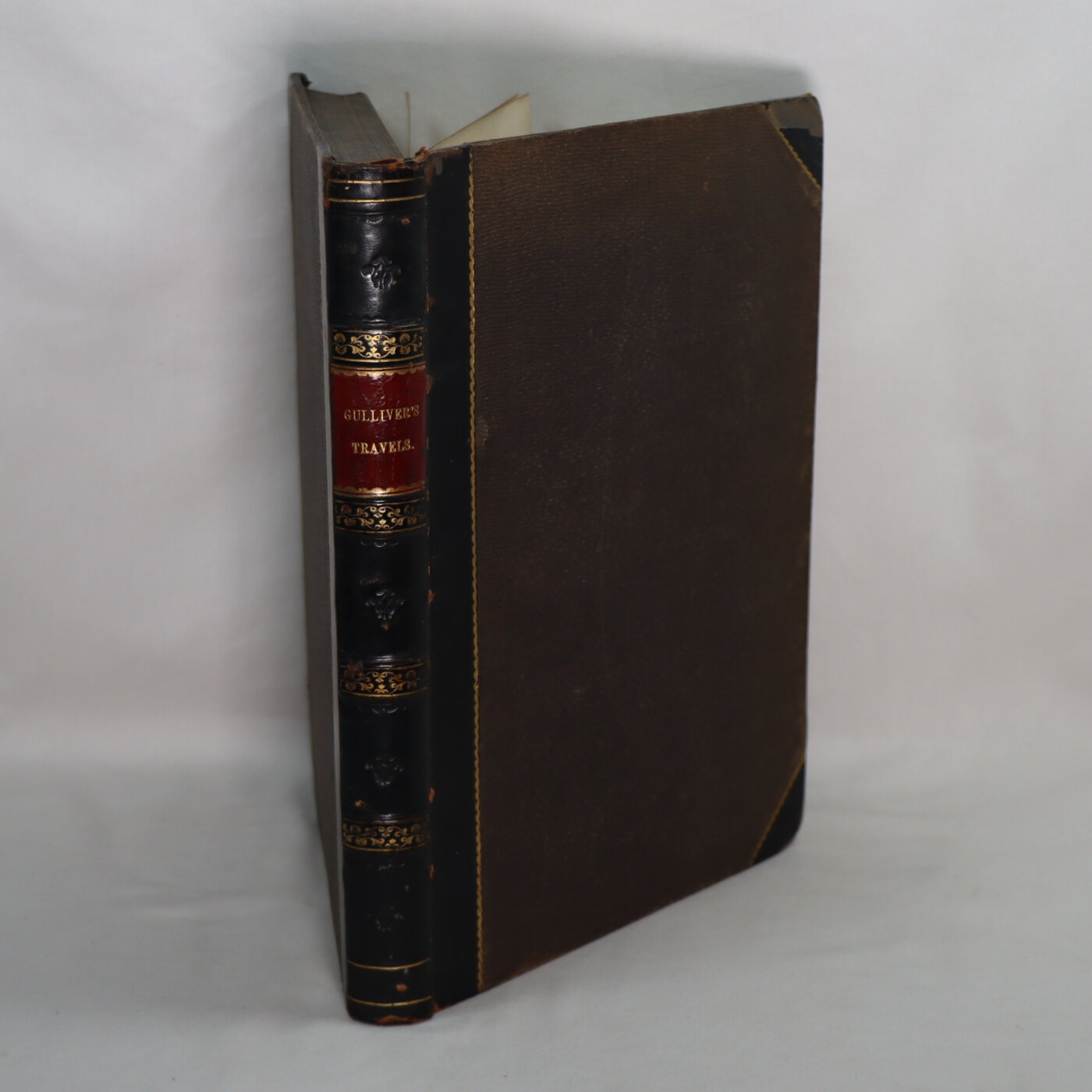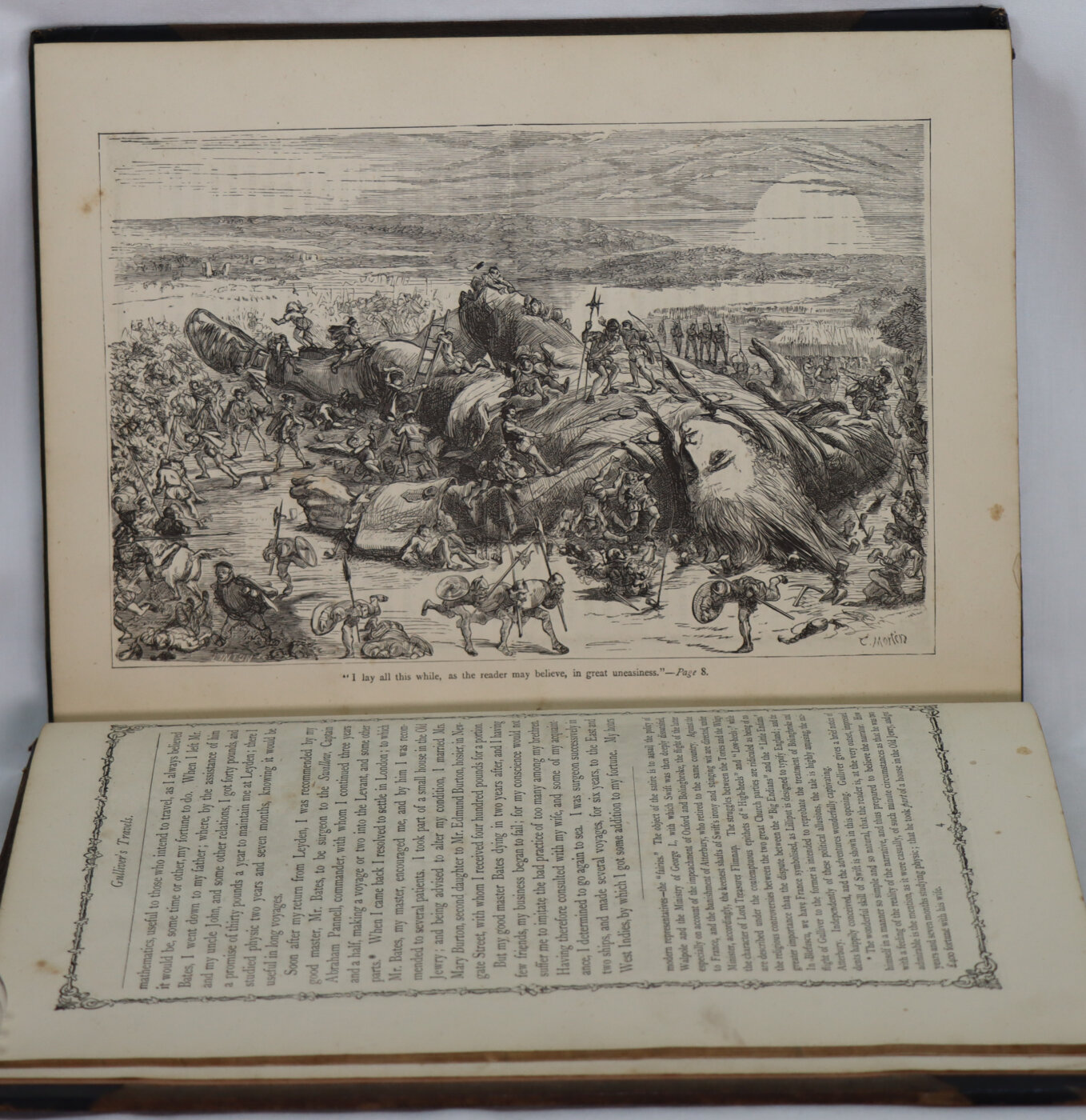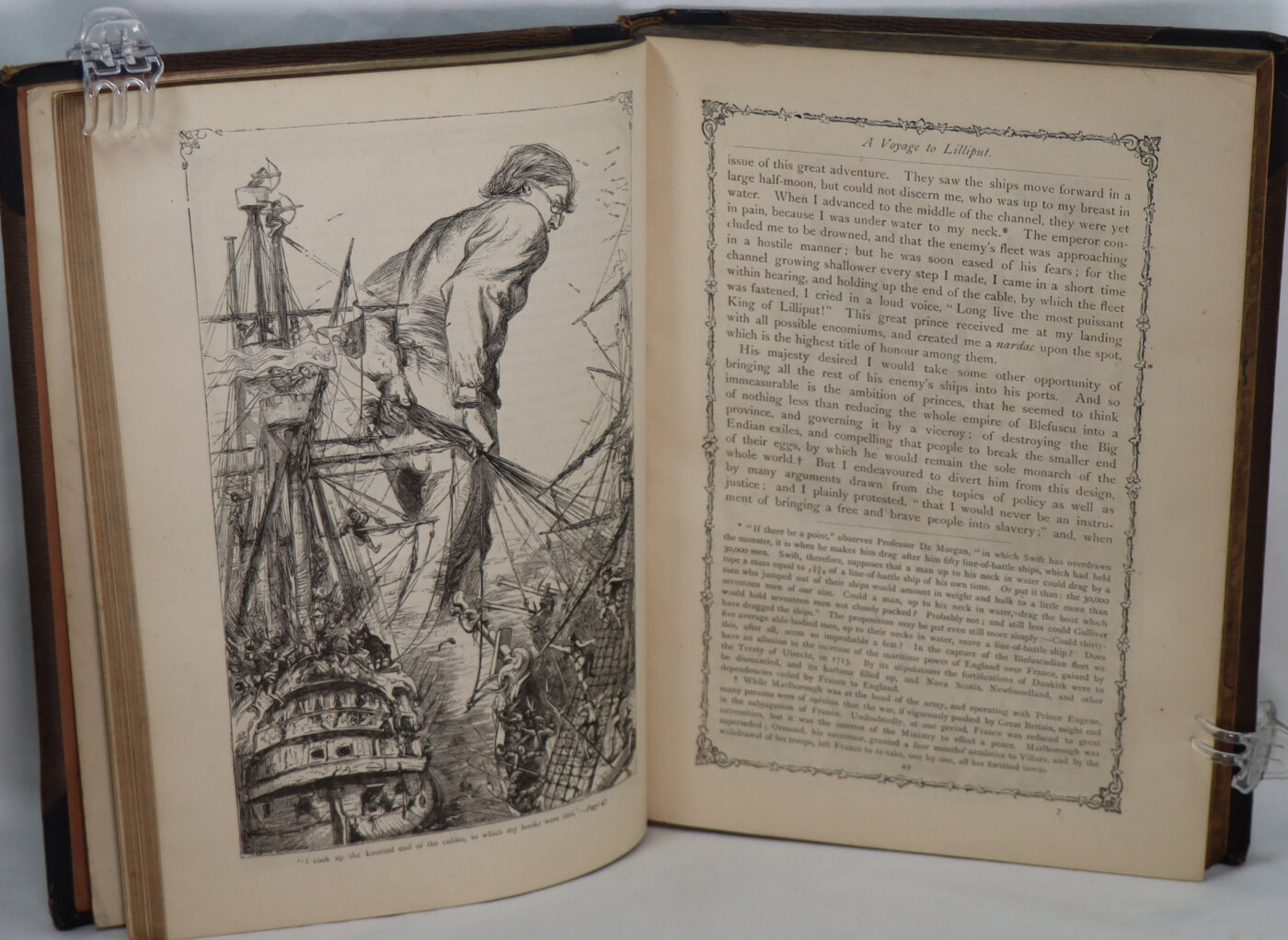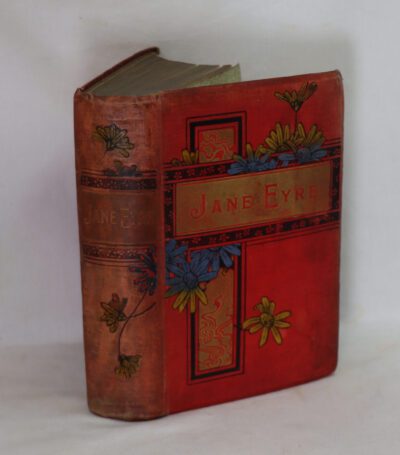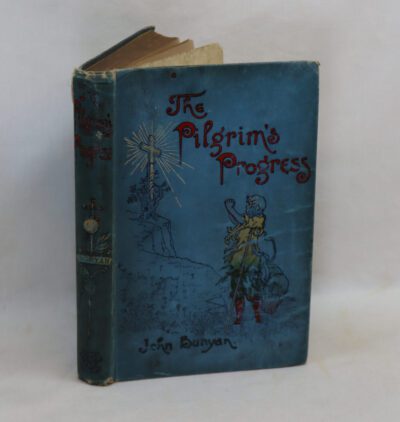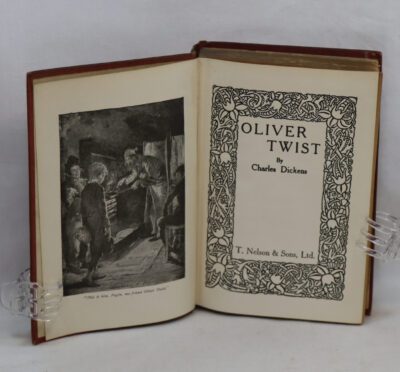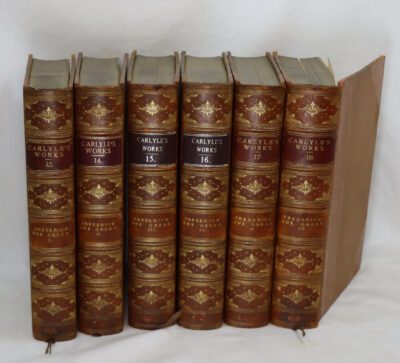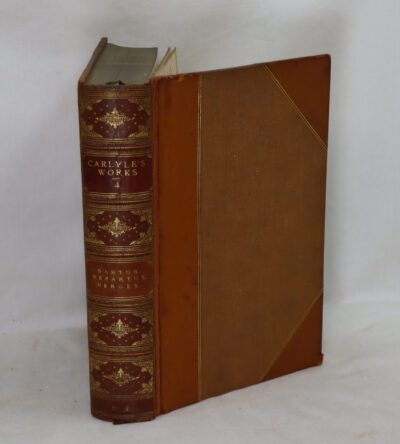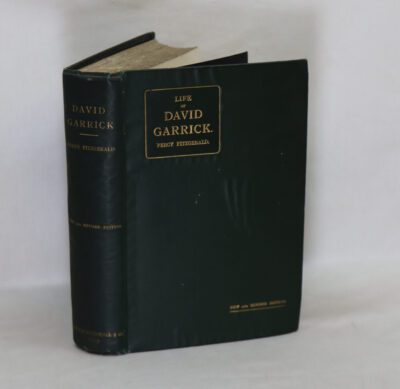Gulliver's Travels. ( Illustrated).
By Jonathan Swift
Printed: Circa 1890
Publisher: Cassell Petter & Galpin. London
| Dimensions | 21 × 27 × 3 cm |
|---|---|
| Language |
Language: English
Size (cminches): 21 x 27 x 3
Condition: Very good (See explanation of ratings)
Item information
Description
Black calf spine with red title plate, gilt banding and title. Brown textured cloth boards.
We provide an in-depth photographic presentation of this item to stimulate your feeling and touch. More traditional book descriptions are immediately available.
Note: This book carries the £5.00 discount to those that subscribe to the F.B.A. mailing list.
Gulliver”s Travels into several Remote Regions of the World. A new edition. With Explanatory Notes and a Life of the Author by John Francis Waller. Illustrated by T. Morten is a pleasant rendition of Swift’s famous tale. This volume has age wear and though foxed remains very readable with well preserved illustrations.
Gulliver’s Travels, or Travels into Several Remote Nations of the World. In Four Parts. By Lemuel Gulliver, First a Surgeon, and then a Captain of Several Ships is a 1726 prose satire by the Anglo-Irish writer and clergyman Jonathan Swift, satirising both human nature and the “travellers’ tales” literary subgenre. It is Swift’s best-known full-length work and a classic of English literature. Swift claimed that he wrote Gulliver’s Travels “to vex the world rather than divert it”. The book was an immediate success. The English dramatist John Gay remarked, “It is universally read, from the cabinet council to the nursery.”[
Jonathan Swift (30 November 1667 – 19 October 1745) was an Anglo-Irish satirist, author, essayist, political pamphleteer (first for the Whigs, then for the Tories), poet, and Anglican cleric who became Dean of St Patrick’s Cathedral, Dublin, hence his common sobriquet, “Dean Swift”.
Swift is remembered for works such as A Tale of a Tub (1704), An Argument Against Abolishing Christianity (1712), Gulliver’s Travels (1726), and A Modest Proposal (1729). He is regarded by the Encyclopædia Britannica as the foremost prose satirist in the English language. He originally published all of his works under pseudonyms—including Lemuel Gulliver, Isaac Bickerstaff, M. B. Drapier—or anonymously. He was a master of two styles of satire, the Horatian and Juvenalian styles.
His deadpan, ironic writing style, particularly in A Modest Proposal, has led to such satire being subsequently termed “Swiftian”.
Condition notes
Want to know more about this item?
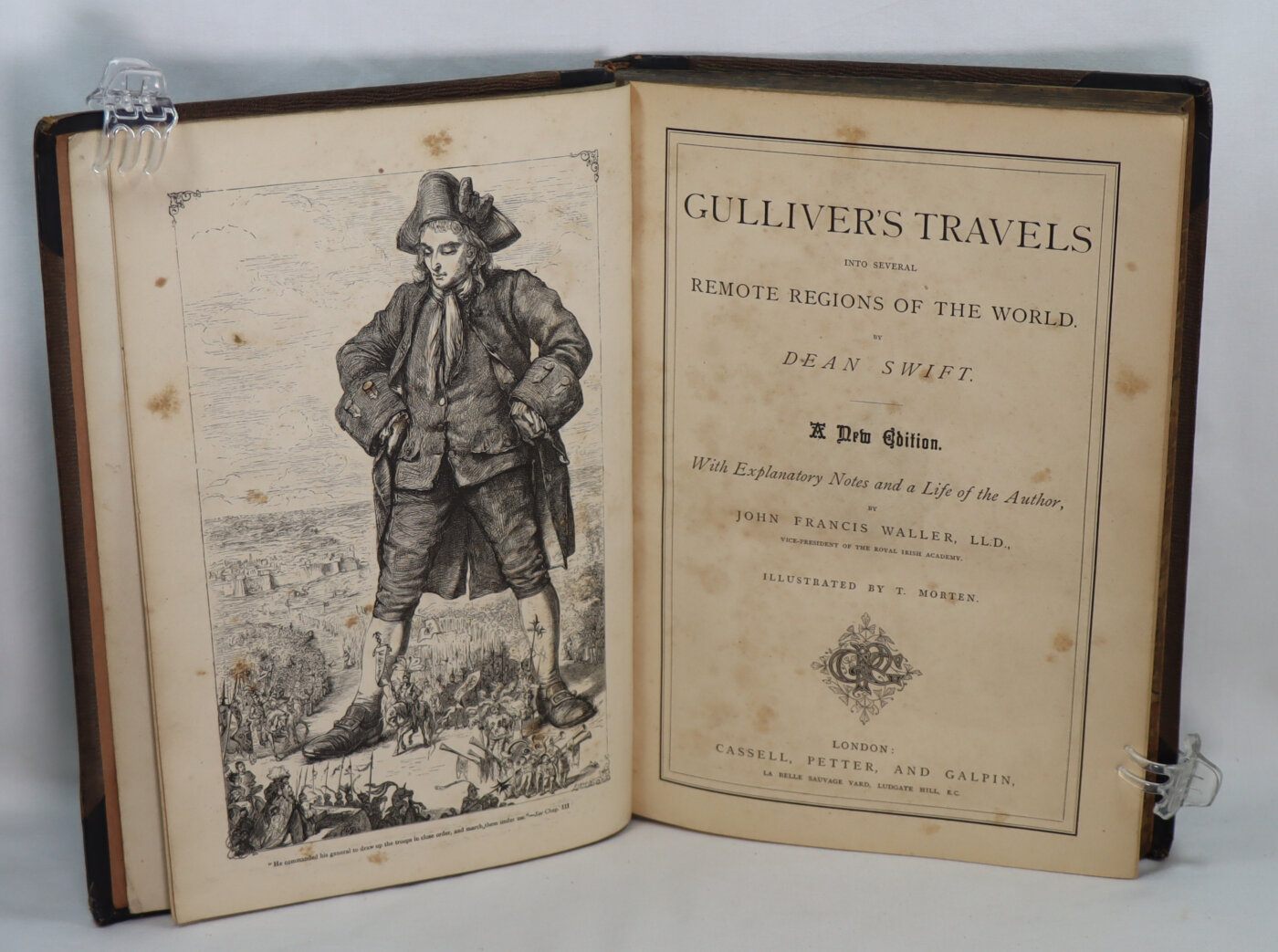
Related products
Share this Page with a friend

